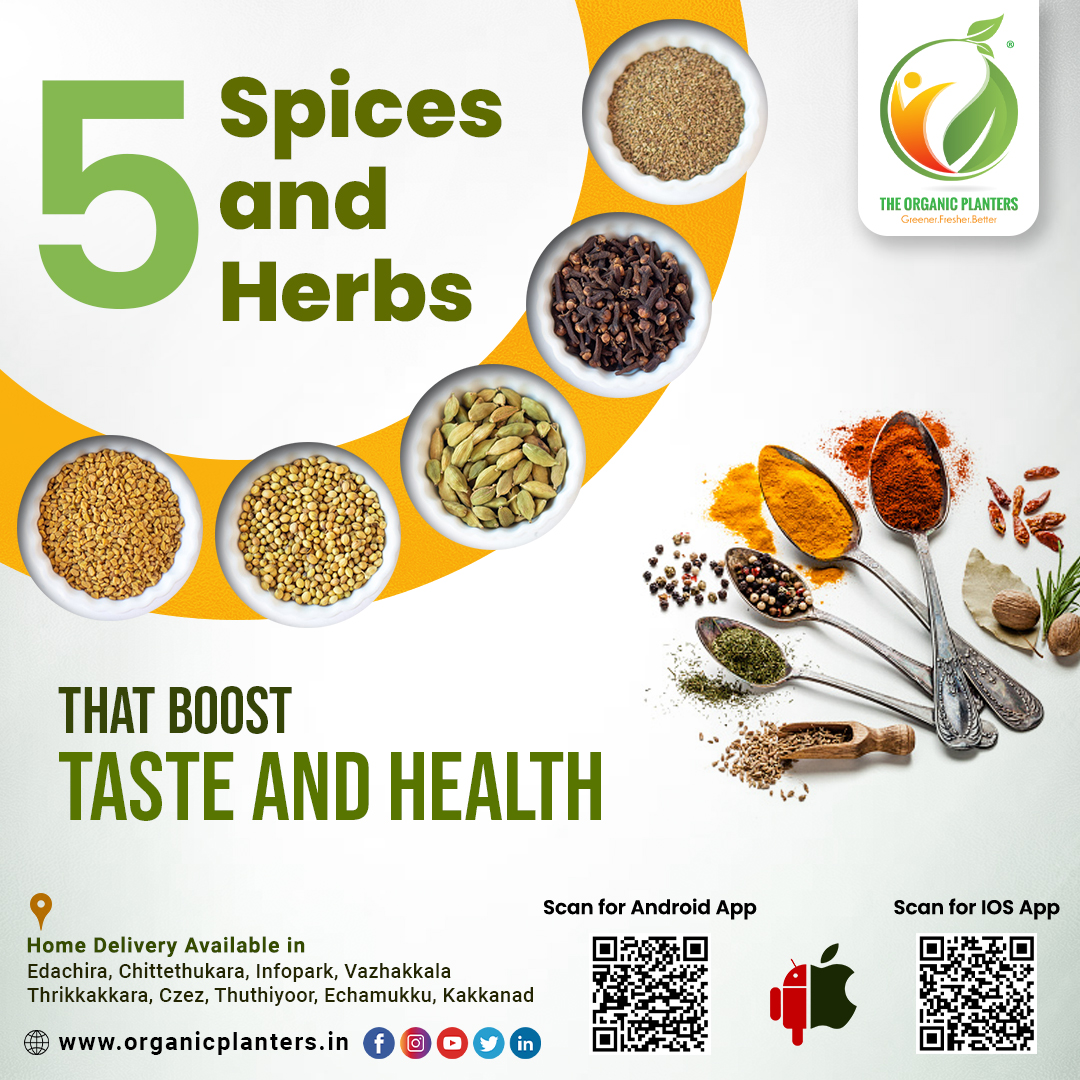5 Spices And Herbs That Boost Taste And Health
Spices are used extensively in the preparation of cuisine all throughout the world. Because each spice has its own distinct flavour and essence, adding or removing a spice from a dish can essentially make or break it. We use a wide range of other spices in our daily cooking in addition to the traditional ones like cumin, black pepper, turmeric, and coriander seeds. In ancient times, traders came from distant corners of the world to India in search of rare spices. Many of these traders came back with their fair share, and some even settled down and brought some of their own spices. Given their numerous health advantages, spices are actually what make traditional Indian home cooking one of the healthiest foods consumed worldwide. Spices offer some significant health advantages and noteworthy nutritional value.
What Are Dals And Pulses?
Here are five of the greatest herbs and spices to use to increase the nutritional value of your meals.
Turmeric
This golden spice has various benefits that are solid gold. That's because it contains a lot of the potent antioxidant curcumin. Numerous health issues, including minor toothaches and chronic diseases like diabetes, heart disease, and arthritis, can be helped by curcumin, according to studies. By balancing the body's production of adipokines, a group of hormone-like compounds that control blood sugar, it has also been demonstrated to protect against type 2 diabetes. Inflammation, discomfort, and metabolic syndrome can all be treated with curcumin.
Ginger
Ginger is frequently used to relieve gastrointestinal discomfort. According to studies, it can lessen chemo-induced nausea and morning sickness. Ginger is commonly used as a motion sickness treatment even if there isn't any solid evidence to back it up.
Black pepper
A little black pepper may be a terrific complement to any recipe. Black pepper, sometimes known as the "king of spices," helps with weight loss, relieves cold and cough symptoms, boosts metabolism, and treats a number of skin conditions.
Black cumin
Allergies, asthma, and other respiratory conditions can be prevented with the aid of black cumin seed oil. Contains anti-inflammatory antioxidants, healthy acids, and B vitamins. The immune system is balanced by the antioxidants, healthy acids, and b vitamins found in black cumin seeds. They have also been found to be far more effective than practically every other natural treatment for autoimmune illnesses.
Clove
Cloves have antiseptic, antibacterial, and antifungal properties. They are a powerhouse of antioxidants and a great source of fibre, vitamins, minerals, and omega-3 fatty acids. One of the best sources of antioxidants is clove oil. It is used as an antibacterial and pain reliever in aromatherapy, particularly for toothaches and stomach pain. To treat a variety of illnesses, it is frequently blended with other oils. For people who struggle to fall asleep, applying warm clove oil and sesame oil to the forehead can help them feel calm and comfortable.
End Point
In addition to adding taste to food, herbs and spices are also nutrient powerhouses that have enormous health benefits.
Integrating herbs and spices into one's diet may have some positive effects on one's health.
 Vegetables
Vegetables
 Fruits
Fruits
 Other Products
Other Products
 Rice, Millets & Pulses
Rice, Millets & Pulses
 Traditional Handicrafts
Traditional Handicrafts
 Beauty Products
Beauty Products
 Masalas and Powdered Spices
Masalas and Powdered Spices
 Spices
Spices
 Organic Pesticides
Organic Pesticides


 0
0 +91 9288003324
+91 9288003324




